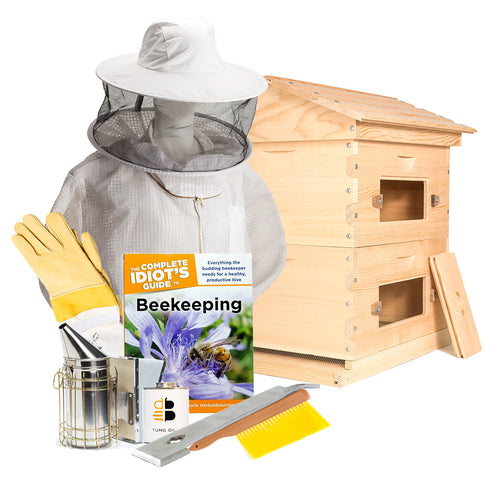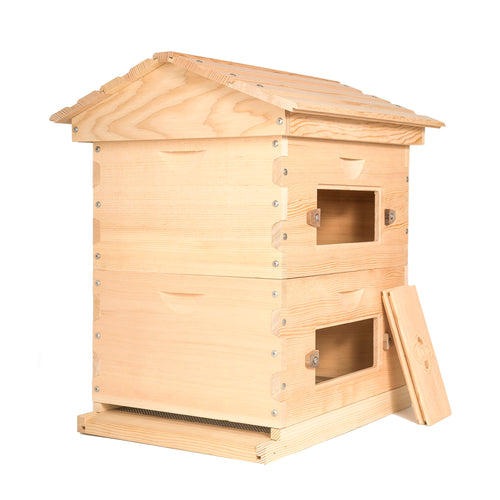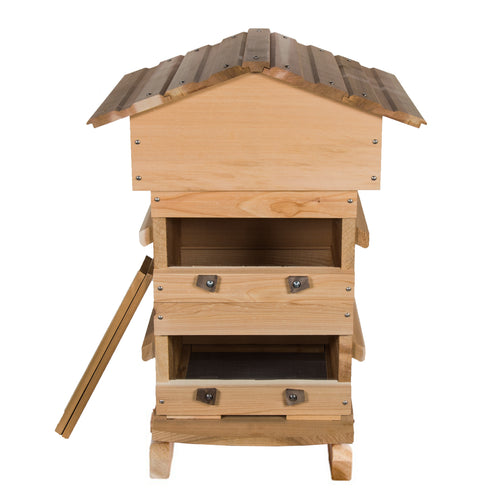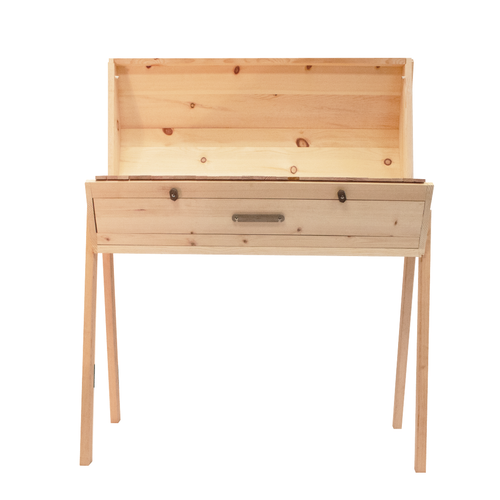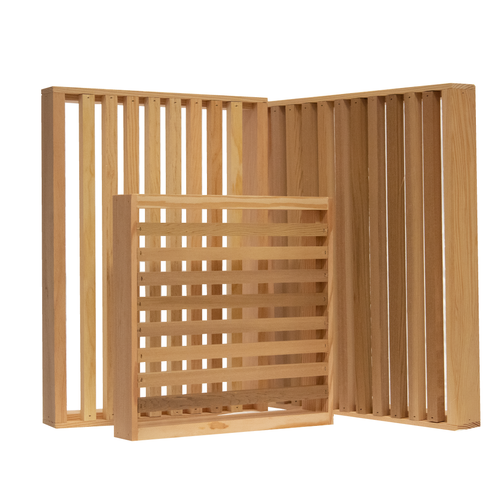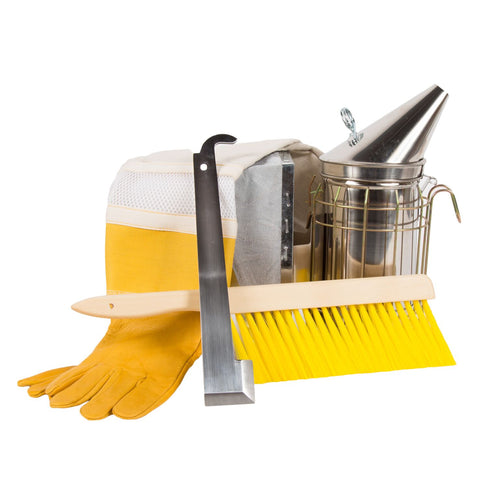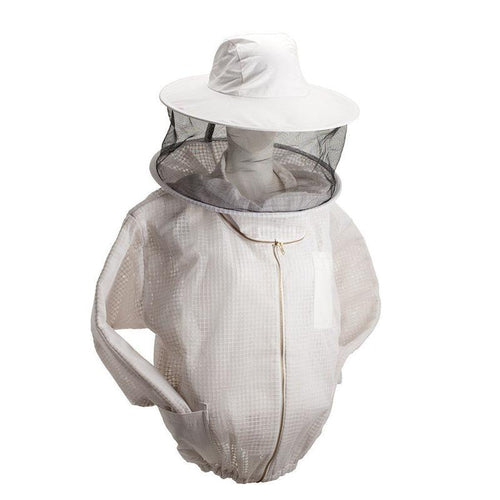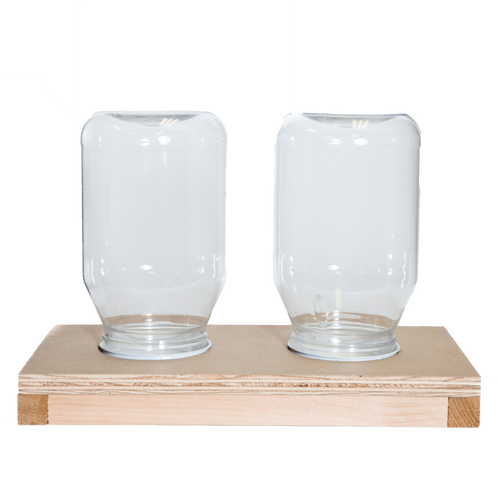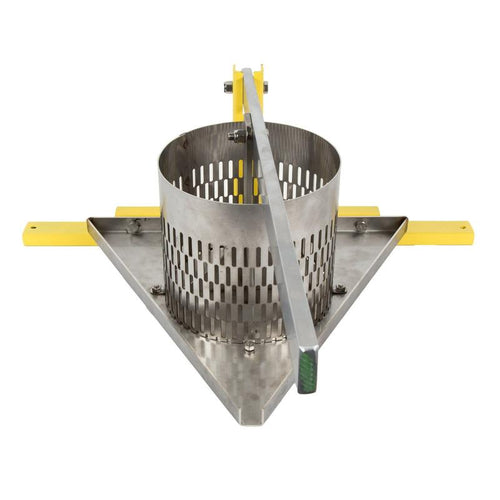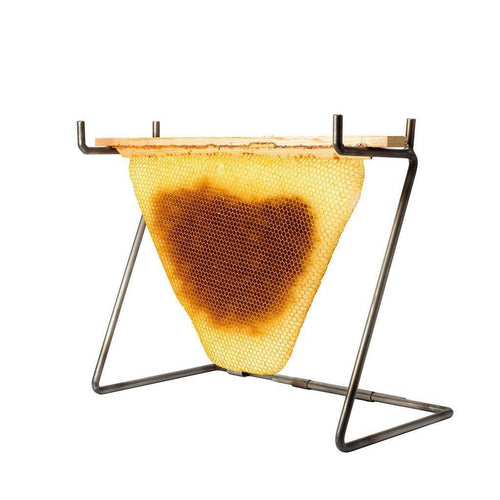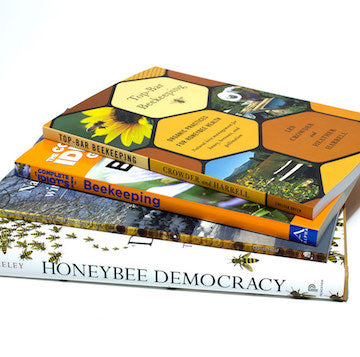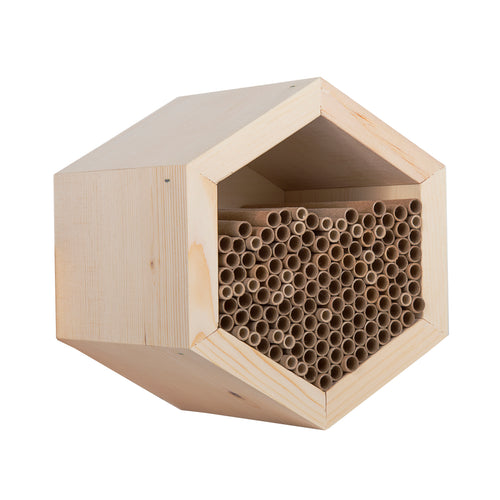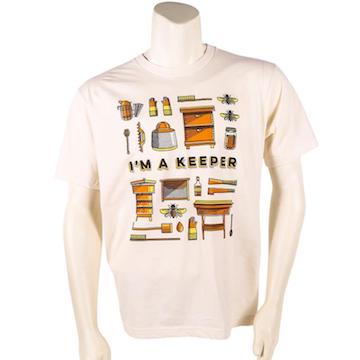Hives from Bee Thinking have made long journeys to beekeepers in Canada, Australia, the United Kingdom, and beyond. They appear on the roofs of hotels, at schools, and increasingly at wineries and vineyards.
With the heat of summer settling in around Bee Thinking Headquarters here in Portland, I decided to escape the city and head west into the Dundee Hills American Viticultural Area, a lush landscape of rolling vine-clad hills, distant forest ridges, and picturesque tasting rooms. Along the way I visited some well-known wineries that also keep bees in Bee Thinking hives.

Sokol Blosser Winery began over 40 years ago and has developed a reputation for world-class Pinot Noir, among other varieties that they produce. The property stretches over 120 acres and includes a small apiary. Their landscape artist and beekeeper Jason Anderson generously sat down with me for a quick interview.


How did you get started beekeeping?
So, it’s a crazy awesome story: before I got this job I was working in sales and not necessarily enjoying it—at least not what I was selling. This job came about, which was an awesome blessing, and it really sent me back to growing up in Jamaica where my dad was a commercial beekeeper and managed a fish hatchery. The hatchery was set up exactly like [the crops are] here: there were acreages of ponds, offices, and plantings. One day here I driving around with Alex Sokol Blosser and it really reminded me of my childhood, so I asked him: would you ever be interested in having bees here? He told me that his cousin [Bee Thinking co-owner Matt Reed] is a beekeeper and used to have hives here but lived in Portland and but now didn’t have time to drive out and manage the bees. He asked if I wanted to take a class, and I ended up taking the Beginning Beekeeping Class at Bee Thinking.
There’s so much to know and class is only three hours, but it was a really awesome experience that inspired me to seek out more education. That was the beginning of my new passion and love for beekeeping.

What kind of beehive design do you use, and how did you decide?
Initially I associated bees with honey, for obvious reasons, and I decided to use Langstroth hives for better honey production. In learning more about bees and how much they’ve become a commodity these days, I like the idea Bee Thinking as a company because they approach beekeeping with a more minimal approach, as far as using foundationless frames, natural comb, and I like that idea. I still hope to get honey from the bees. If it’s not this year that’s fine, and I mostly want good healthy hives.
Sokol Blosser has a strong environment focus and LEED certified buildings, how do bees fit into the larger vision for the vineyard ecosystem and business?
The overall vision, from my perspective, is for Sokol Blosser to be a good steward of the land. We’re certified organic and that takes a whole difference approach from vineyard management to how they handle the wines in production. I don’t know everything about [wine production], but I definitely think being a steward of the land also involves combining what we grow on the landscape and what introduce as a far as animals and insects to create a balance.
As for honey and business, as a beekeeper there are so many different directions you can go—whether it’s using propolis, using leftover wax, or honey extraction. We have a restaurant and culinary specialist here on site that uses honey; it would be nice if we could provide our own. We have packaged fruit, jams, nuts, and why not honey?


Do you have any advice for beginning beekeepers?
Definitely take classes before you start beekeeping. I would never jump into beekeeping without education or mentorship because you’ll learn the hard way, and you may lose bees; if you bought a package, then that means losing money. Join your local beekeeping club and attend the meetings. If you really want to dive into it, I would join the master beekeeper program at Oregon State University. It’s been an excellent resource to head in the right direction for managing your hives.
Thanks for that advice! Do you have a favorite part of beekeeping or beekeeping experience?
Oh yeah! My favorite thing is catching swarms—I’m sure everyone’s is. My funniest memory…I’ve been catching a lot of swarms this summer for friends, and one of them was at Anderson Family Vineyard. I wanted to get in there really quickly and I wasn’t wearing my veil. It was an easy, low swarm and I thought “I can just shake them into the box, no problem”. I sprayed them down really well with sugar water and sure enough, I got stung in the neck. My neck got so swollen I looked like I had a really long face. Now I don’t care how tough I think I am, I will always wear [protective gear] when I’m catching swarms.

Any other message you’d like to share with our readers?
Everyone should start beekeeping! Work towards keeping healthy bees and being an advocate for bees. It’s amazing how beekeeping changes your perspective. I think it really adds character to a person and it connects you to nature.



**this post begins a series of interviews and conversations with beekeepers and Bee Thinking hive users on keeping bees, making the most of your hive, and bees in the landscape**


